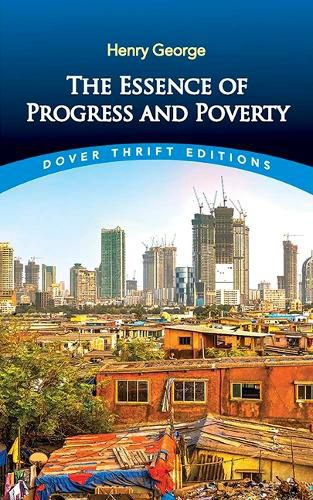Readings Newsletter
Become a Readings Member to make your shopping experience even easier.
Sign in or sign up for free!
You’re not far away from qualifying for FREE standard shipping within Australia
You’ve qualified for FREE standard shipping within Australia
The cart is loading…






In this concise text, the distinguished American philosopher John Dewey compiled excerpts from the massive Progress and Poverty to provide those unfamiliar with Henry George’s work with the essence of the author’s thinking on economics. In his Foreword, Dewey noted, It would require less than the fingers of the two hands to enumerate those who from Plato down rank with [George]. No man, no graduate of a higher educational institution, has a right to regard himself as an educated man in social thought unless he has some first-hand acquaintance with the theoretical contribution of this great American thinker.
Fifteen brief chapters feature passages from George’s highly influential book and examine why poverty persists throughout periods of economic and technological progress as well as the basis for economic cycles of boom and bust. AUTHOR: Henry George (1839 97) went to sea on a merchant ship at age 15, and by the end of the 1850s was working in San Francisco as a typesetter. A career in journalism followed, and George gradually become a successful popular speaker on the issues of his day as well as an effective writer. He moved to New York around the time Progress and Poverty was published and ran for mayor, losing in an election that may have been marred by fraud. His second campaign for mayor ended with a fatal stroke. Thousands turned out for his funeral, which was described as the largest in New York’s history (or at least the largest since the death of Abraham Lincoln); even George’s bitterest opponents at Tammany Hall flew their flag at half-staff on that day.
$9.00 standard shipping within Australia
FREE standard shipping within Australia for orders over $100.00
Express & International shipping calculated at checkout
In this concise text, the distinguished American philosopher John Dewey compiled excerpts from the massive Progress and Poverty to provide those unfamiliar with Henry George’s work with the essence of the author’s thinking on economics. In his Foreword, Dewey noted, It would require less than the fingers of the two hands to enumerate those who from Plato down rank with [George]. No man, no graduate of a higher educational institution, has a right to regard himself as an educated man in social thought unless he has some first-hand acquaintance with the theoretical contribution of this great American thinker.
Fifteen brief chapters feature passages from George’s highly influential book and examine why poverty persists throughout periods of economic and technological progress as well as the basis for economic cycles of boom and bust. AUTHOR: Henry George (1839 97) went to sea on a merchant ship at age 15, and by the end of the 1850s was working in San Francisco as a typesetter. A career in journalism followed, and George gradually become a successful popular speaker on the issues of his day as well as an effective writer. He moved to New York around the time Progress and Poverty was published and ran for mayor, losing in an election that may have been marred by fraud. His second campaign for mayor ended with a fatal stroke. Thousands turned out for his funeral, which was described as the largest in New York’s history (or at least the largest since the death of Abraham Lincoln); even George’s bitterest opponents at Tammany Hall flew their flag at half-staff on that day.